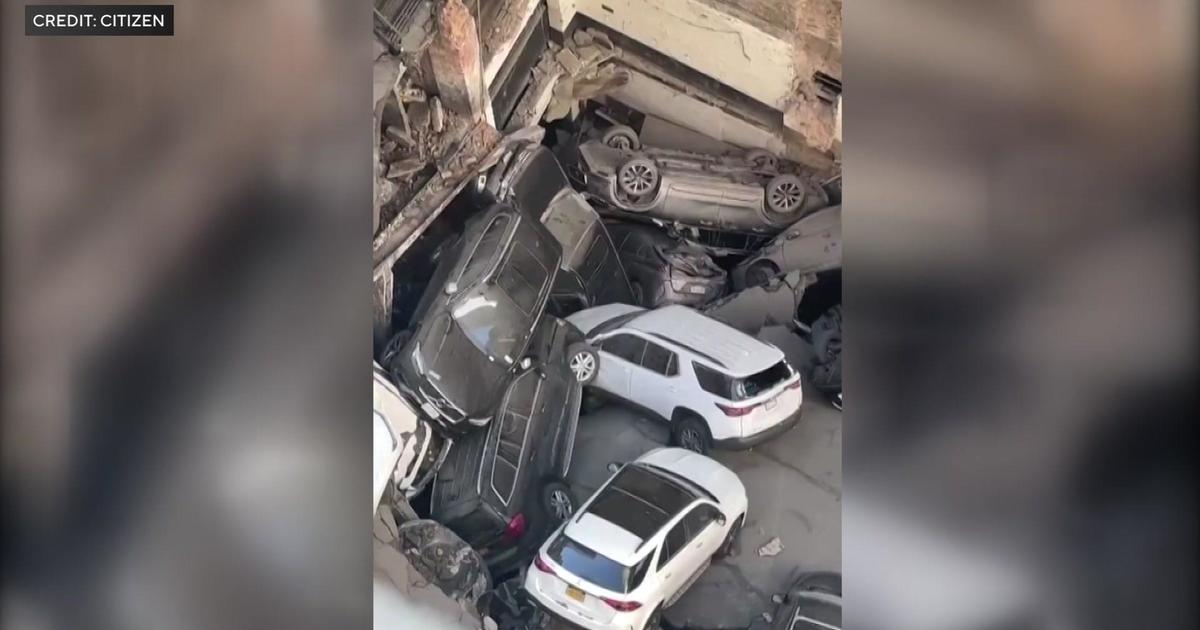Congestion Pricing Is Coming, But Many Questions Remain Unanswered
NEW YORK (CBSNewYork) -- Congestion pricing is a done deal in Manhattan.
Drivers who enter Midtown below 60th Street will pay a toll.
The change came this weekend as lawmakers approved the state budget.
A lot of the details of the plan still have to be fleshed out, but the mission is clear: It's to get cars off the road.
Got a question about congestion pricing? We want to know! Tell us what it is.
Is it a windfall for mass transit or a downfall for commuters?
The plan got the green light in Albany, but many, many people are seeing red.
When it comes to congestion pricing, some New Yorkers are asking "what the heck?" If you want to know what that means, locksmith Harold Moskovitz summed it up.
"You shoved this down my throat, just like you shoved the bicycle lanes down my throat. And now you want me to pay for it? I'm not happy about it, not at all," he said.
"This will affect every New Yorker in every capacity, and there is not a full understanding from the business side because you have people up in Albany that have no conception. They're like drunken sailors with money," said John Grasso.
Dawn Howell ditched her car when she moved to New York. All of the traffic in her Midtown neighborhood has her considering another move, this time to the outer boroughs.
"This area we're going to move from, just because the congestion is so bad, the air pollution is so bad, in the summer especially," she told CBS2's Aundrea Cline-Thomas.
In 2021, drivers will have to pay a toll to enter Midtown below 60th Street. The surcharge will not apply to the West Side Highway and FDR Drive.
Web Extra: Gov. Andrew Cuomo Discusses Budget, Congestion Pricing
New Yorkers awoke to find that the decades-long debate about charging a hefty fee to get into Manhattan's busiest areas is now a reality, and to say they don't like it is an understatement, reported CBS2's Marcia Kramer. Subway riders, who will benefit from the $25 in capital improvements, don't like it either, Kramer reported.
"They're going to kill us with all these people on the trains, packed together like sardines," said subway rider Taiwan Bennett. "That's crazy."
With the trains and platforms already packed, that becomes the key question: If congestion pricing forces people out of their cars, can the system handle it?
Mark Peters On What We Know And Don't Know On Congestion Pricing
Kramer put the question to former New York City transportation commissioner Sam Schwartz, who has been pushing for congestion pricing for a half century.
"The MTA has got to step up to the plate now the public is giving a lot of money to the MTA, and the MTA has got to make progress," Schwartz said.
Newly appointed MTA chair Patrick Foye says the system will be able to handle the expected influx of new riders in part, because of whatever reason - crowded trains, bad service - subway ridership has decreased for a decade. Weekday subway ridership is down 300,000 and weekday bus ridership is down 600,000, according to the MTA. And with congestion pricing expected to start in January 2021, the MTA has time to up its game.
Kramer brought the concerns of riders to Foye.
"What do you say to them when they say 'I'm already feeling like a sardine,'" she asked.
"Well, look Marcia, the capital plan is going to provide new rail cars and buses on New York city transit, new railcars on Metro-North and Long Island Rail Road," Foye said. Between that and new technology, he believes it will increase capacity.
Details are scarce.
"We don't even know where it's going to be, is it going to hit you over and then over? They're not really telling us anything," said Will Imhof of Staten Island.
He's right, because lawmakers kicked the can down the road when it comes to all the details: How much you'll pay, when you'll pay it, and do you get hit more than once if you already use a bridge or tunnel.
For political deniability, a six-member panel yet to be named will make all those decisions. They won't make them public until after November 2020, when state lawmakers are up for reelection.
The plan is expected to raise more than $1 billion a year for the MTA to upgrade the city's aging transit system. A review board will determine the prices, however sources tell CBS2 that cars will pay around $11.50 and $25 for truck drivers.
The charges could vary depending on the time of the day.
"The only way to stop people from using their vehicles and use public transportation is when you hurt their pocket," said commuter Ash Fanaz.
Howell agrees something has to be done.
"I don't know if it's going to be enough, but I think it's movement in the right direction. At least they're doing something," she said.



